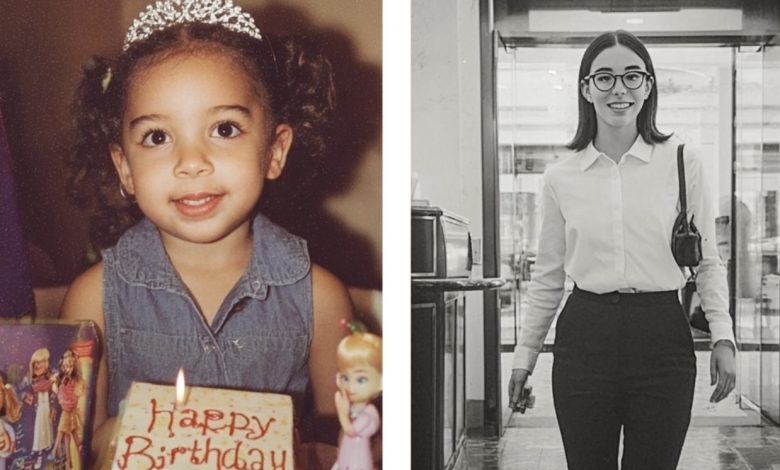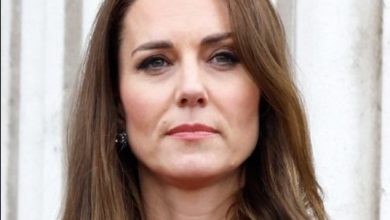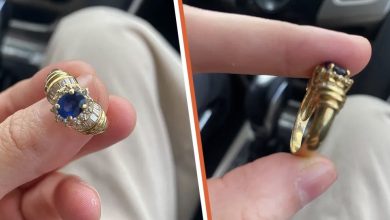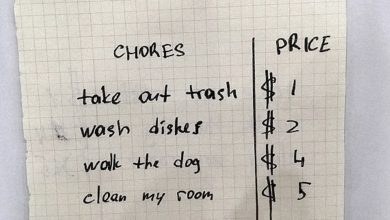Left by Her Father for His Mistress, She Returns Years Later…

William had been married to Linda for two full decades, and together they’d raised a daughter, Isabelle, now seventeen. They had a cozy home—one that Linda had inherited from her parents—and even started a small beef jerky business a year earlier. When that venture failed to turn a profit, William’s steady paycheck held them up. But one ordinary evening, William told Linda he had something urgent to discuss.
“Linda,” he began, voice heavy, “there’s someone else. I’ve fallen for someone younger.”
Linda’s face drained of color. “What are you talking about?” she asked, voice trembling. “You’re married to me. What do you mean you love another woman?”
William lowered his gaze. “I didn’t plan for this to happen. It just did. I can’t ignore how I feel.”
“Do you even hear yourself?” Linda snapped. “After all these years—after everything we’ve built together—you’re throwing it all away for someone you barely know?”
William tried to explain, but his excuses sounded hollow. He said the other woman made him feel alive again, that their connection was electric. But his words felt like knives twisting in Linda’s heart.
At that moment Linda’s phone buzzed. She answered, her eyes widening as she listened. When she hung up, tears filled her eyes. “The bank is foreclosing on our house—they’ve seized it to cover the loan for the jerky business. We owe eighty thousand dollars, William. Eighty thousand!”
William’s shoulders slumped. He tried to shrug it off—said he hadn’t saved enough, that he was doing his best. But Linda’s patience had run out. “Get out,” she cried. “I don’t want you here anymore.”
So, six years ago, William packed a bag and left the only home he’d ever known—leaving behind his wife and their teenage daughter. He thought he would find happiness with his mistress. Instead, he lost that life too: the new relationship soured, he lost his job, and he spiraled into bad choices, trying to numb his regrets.
Meanwhile, Linda and Isabelle faced the crushing blow of homelessness. The bank sold their home at auction and kept most of the money. Left with only a fraction of what they’d paid, they moved into a cramped shelter and depended on friends for a couch to sleep on. Linda worked double shifts—cleaning offices at night, waiting tables during the day—just to buy groceries. Isabelle, still in high school, pitched in however she could, tutoring younger kids for pocket money and helping her mom stretch every dollar.
Through all of it, Linda refused to let her daughter give up on her dreams. Education was their path out of hardship, she’d tell Isabelle. So even when surgery loomed over her own health—a sign of a heart problem that could strike without warning—she held back the worry, confident that together they would find a way.
Isabelle graduated from high school at the top of her class, but college tuition and her mother’s looming medical bills closed that door. When Aunt Georgina learned of Linda’s heart condition and the possibility of a surgery costing over one hundred thousand dollars, she offered her guest room and a part-time job. That moved the needle, but only by a fraction. College applications, family debts, rent—everything demanded money they did not have.
One evening, as Isabelle looked at her mother’s fragile smile, something inside her clicked. She remembered the old jerky recipe book, the delivery oven, the stainless-steel bowls gathering dust in their seized home. Maybe she could resurrect that business, but this time do it right—on her own terms.
She found a tiny studio apartment and scraped together enough from odd jobs to buy a battered pickup truck. After work, she spent evenings breaking into the empty house—careful to avoid police—up in the attic where the family’s old kitchen gear lay locked away. She retrieved pots, pans, and her mother’s recipe cards, then quietly moved them to her new flat.
It wasn’t easy. The first batches of jerky tasted like rubber. The second batch was too salty. Day after day she tweaked the marinade—less soy, more brown sugar; extra garlic; a splash of coffee for depth. By the end of the month, she landed on a flavor that made her eyes light up. This was it: sweet and savory, lean and chewy, with just the right kick.
Isabelle printed labels on her home computer and set up a folding table at local farmers’ markets. She sold out every week. Encouraged, she cold-emailed regional grocery chains, offering free samples. Week by week, her contacts multiplied. A mid-sized chain gave her a trial order for a thousand packets, and she hustled to meet the demand—packing each bag herself late into the night, the humming fluorescent light her only companion.
As her business grew, she reconnected with Aunt Georgina, who connected her to Mr. Navarro—a man in town known for investing in small producers. He visited her makeshift plant in an abandoned garage, probed her numbers, and said, “I’ll invest, but I want a share in any future profits—and a piece of what’s left of your old home’s sale price.” It was a bitter deal, but Isabelle needed it.
With Mr. Navarro’s backing, she upgraded to a proper production space and hired a small team. She sealed a deal with a national retailer to carry ten thousand packets a month. Within two years, “Bella’s Best Jerky” was on shelves coast to coast. Sales soared, her brand became a darling of food blogs, and she even hired a design firm for sleek packaging.
Through it all, Isabelle kept her mother’s faith alive. She paid for Linda’s long-delayed heart surgery, gradually cleared the mortgage debt, and then found a way to reclaim the family home. All the while, she carried the old recipe book in her purse—a reminder of how far they’d come.
One morning, six years after his departure, William arrived at a jerky factory for a job interview. He cleaned himself up—pressed shirt, neat tie—feeling a mix of nerves and hope. When he walked in, he was surprised how small the operation looked. He sat in the waiting room, tapping his foot, until his number was called.
To his relief, he landed a position as a packaging operator. Day three on the line, he was busily labeling boxes when his manager, Mr. Dunn, sidled up. “If you want to move up, you’ll need to shine today. The CEO is touring the facility.”
William frowned. He wasn’t interested in climbing the ladder—he just needed a paycheck. But curiosity got the better of him. He looked toward the entrance just as a woman in a sharp suit strode inside. Their eyes locked—and William’s heart nearly stopped.
“Isabelle?” he breathed.
She turned, cool and composed. “Hello, Dad.” Her voice was polite, but there was steel behind it. “You look…well.”
He stammered, “I-I didn’t expect—how did you—”
She cut him off with a brisk nod. “I’m here on business. I run this company.”
William’s mouth went dry. This was the girl he’d abandoned at seventeen, the same child he never bothered to call or send money to. Now she was his boss—her name on the building, her face on the ID badge, her presence demanding respect.
She walked away to oversee the line. Later, she summoned him to her office. William entered with hesitant steps and sank into the guest chair. Isabelle’s gaze was cool.
“You’ve had six years to wonder how your choices affected us. Do you want to know?” she asked, voice flat.
He nodded, words failing him.
“When you left,” she continued, “we lost our home. We lost our savings. Mom and I lived in shelters and on friends’ couches. I almost dropped out of school so she could stay healthy. We fought every day just to eat.”
William’s throat burned. “Isabelle, I—”
She held up a hand. “You don’t get to apologize yet. I had to build this business from scratch. I worked nights, studied recipes, fixed trucks, dealt with banks. I did it so Mom could have surgery and not worry about money.”
Tears pricked his eyes. “I’m so sorry,” he whispered.
She leaned forward. “I made a deal with Mr. Navarro. He helped me reclaim what we lost. I paid off every debt. I bought back the house. And now I run the company you once failed at.”
She slid two boxes across the desk. One held her mother’s old kitchen tools; the other held a retro-style oven they used to dream of buying. “This is for you,” she said. “Take it and start over. I’ve done mine.”
William felt a strange mix of shame and gratitude. “Thank you,” he managed.
Isabelle stood. “Don’t thank me, Dad. Just don’t betray anyone again.”
He nodded, swallowed hard, and left her office with the boxes in his arms. Behind him, the factory hummed with activity—his daughter’s legacy, born from his mistakes and her determination.
Outside, William paused under a bright sky. He realized that life had given him the justice he sought: he had lost everything, and watched the child he abandoned become the very person to offer him a second chance.
He drove away slowly, ovens and pots resting in the back of his car, and for the first time in years, felt both humbled and hopeful. He knew he would never forget the lessons Isabelle taught him about resilience, forgiveness, and the power of a dream built from scratch.
In the seats behind him, the old jerky recipe lay folded in paper—proof that even broken beginnings can lead to sweet, satisfying endings.










